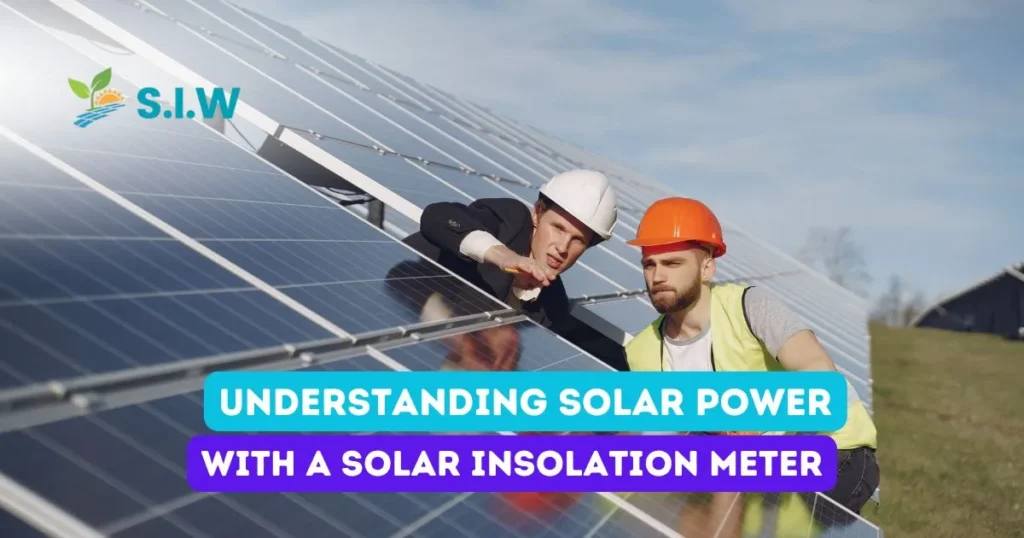Solar insolation meters play a crucial role in evaluating the efficiency of solar energy systems. By measuring the amount of solar radiation reaching a specific area, these devices provide essential data that aids in optimizing solar panel performance and ensuring maximum energy generation. This article delves into the various aspects of solar insolation meters, their functionality, and their significance in the solar energy sector.
What is a Solar Insolation Meter?
A solar insolation meter, often referred to as a solar radiation meter, is a specialized instrument designed to measure the intensity of solar radiation. The term “insolation” refers to the amount of solar radiation energy received on a given surface area during a specific time. These meters are instrumental in assessing how much sunlight is available for solar energy systems and are essential for various applications, including solar panel installation, meteorological studies, and environmental monitoring.
How Do Solar Insolation Meters Work?
Solar insolation meters function by capturing solar radiation and converting it into an electrical signal. The primary components of these meters include a photodiode or photovoltaic cell that detects sunlight and a processing unit that converts the detected signal into a measurable value. The measurement is typically expressed in watts per square meter (W/m²) or kilowatt-hours per square meter per day (kWh/m²/day).
Key Components of a Solar Insolation Meter
- Photovoltaic Cell: This component absorbs solar radiation and generates an electrical signal proportional to the intensity of the sunlight.
- Processing Unit: Converts the electrical signal from the photovoltaic cell into a readable measurement of solar radiation.
- Display Unit: Shows the measured data in an understandable format, often on a digital screen.
- Calibration Mechanism: Ensures that the meter provides accurate readings over time.
Types of Solar Insolation Meters
There are several types of solar insolation meters, each designed to meet specific needs and applications. Understanding these types can help in selecting the right meter for your purposes.
1. Pyranometers
Pyranometers are highly sensitive instruments used to measure global solar radiation. They are equipped with a thermopile sensor that detects solar energy and measures both direct and diffuse radiation. Pyranometers are often used in research, meteorology, and large-scale solar installations.
2. Pyrheliometers
Pyrheliometers measure direct solar radiation by pointing directly at the sun. These instruments are essential for precise solar radiation measurements and are commonly used in scientific studies and solar energy research.
3. Radiometers
Radiometers measure various types of radiation, including solar radiation, infrared radiation, and visible light. They are versatile instruments used in a range of applications from weather forecasting to environmental monitoring.
Importance of Solar Insolation Meters in Solar Energy Systems
Solar insolation meters provide valuable data that directly impacts the efficiency and effectiveness of solar energy systems. Here are several ways these meters are crucial:
1. Optimizing Solar Panel Performance
Accurate measurements of solar radiation help in determining the optimal angle and position for solar panels. By understanding the amount of solar energy available at different times of the day and year, adjustments can be made to maximize energy absorption.
2. Assessing Site Suitability
Before installing solar panels, it’s important to assess the suitability of a site. Solar insolation meters provide data on the solar potential of a location, helping in selecting the best sites for solar installations.
3. Enhancing System Efficiency
By continuously monitoring solar radiation levels, adjustments can be made to maintain optimal system performance. This ongoing assessment helps in identifying issues such as shading or dirt accumulation on solar panels.
4. Supporting Solar Energy Research
Researchers use solar insolation meters to gather data for studies on solar energy technology, climate change, and environmental impacts. This data is crucial for advancing solar technology and improving energy efficiency.
Factors Affecting Solar Radiation Measurements
Several factors can influence the accuracy and reliability of solar radiation measurements. Understanding these factors can help in interpreting data correctly and making informed decisions.
1. Atmospheric Conditions
Weather conditions, such as cloud cover, humidity, and atmospheric particles, can affect solar radiation levels. Solar insolation meters should account for these variables to provide accurate readings.
2. Angle of Measurement
The angle at which solar radiation is measured can impact the data collected. Ensuring that the meter is properly aligned with the sun’s position is essential for accurate measurements.
3. Calibration and Maintenance
Regular calibration and maintenance of solar insolation meters are necessary to ensure continued accuracy. Over time, sensors can drift, affecting the reliability of measurements.
Choosing the Right Solar Insolation Meter
Selecting the appropriate solar insolation meter depends on various factors, including the intended application, measurement precision required, and budget. Here are some tips for choosing the right meter:
1. Define Your Requirements
Determine the specific needs of your project or application. Whether you need high precision for scientific research or a general measurement for a solar installation, choose a meter that meets those needs.
2. Consider the Type of Meter
Select the type of solar insolation meter that aligns with your measurement requirements. Pyranometers and pyrheliometers are suitable for detailed measurements, while radiometers offer versatility.
3. Check Calibration and Accuracy
Ensure that the meter you choose has a proven track record of accuracy and reliability. Look for models with regular calibration and quality assurance.
4. Evaluate Cost and Support
Consider the cost of the meter and any additional support or services offered by the manufacturer. Investing in a high-quality meter can provide long-term benefits and accurate data.
If you are planning to go solar you should consider the best solar companies in Florida as it is among the largest solar states in the USA.
Conclusion
Solar insolation meters are vital tools in the solar energy industry, providing essential data that helps in optimizing solar panel performance, assessing site suitability, and supporting research. By understanding the types, functions, and factors affecting these meters, you can make informed decisions and enhance the efficiency of your solar energy systems.








